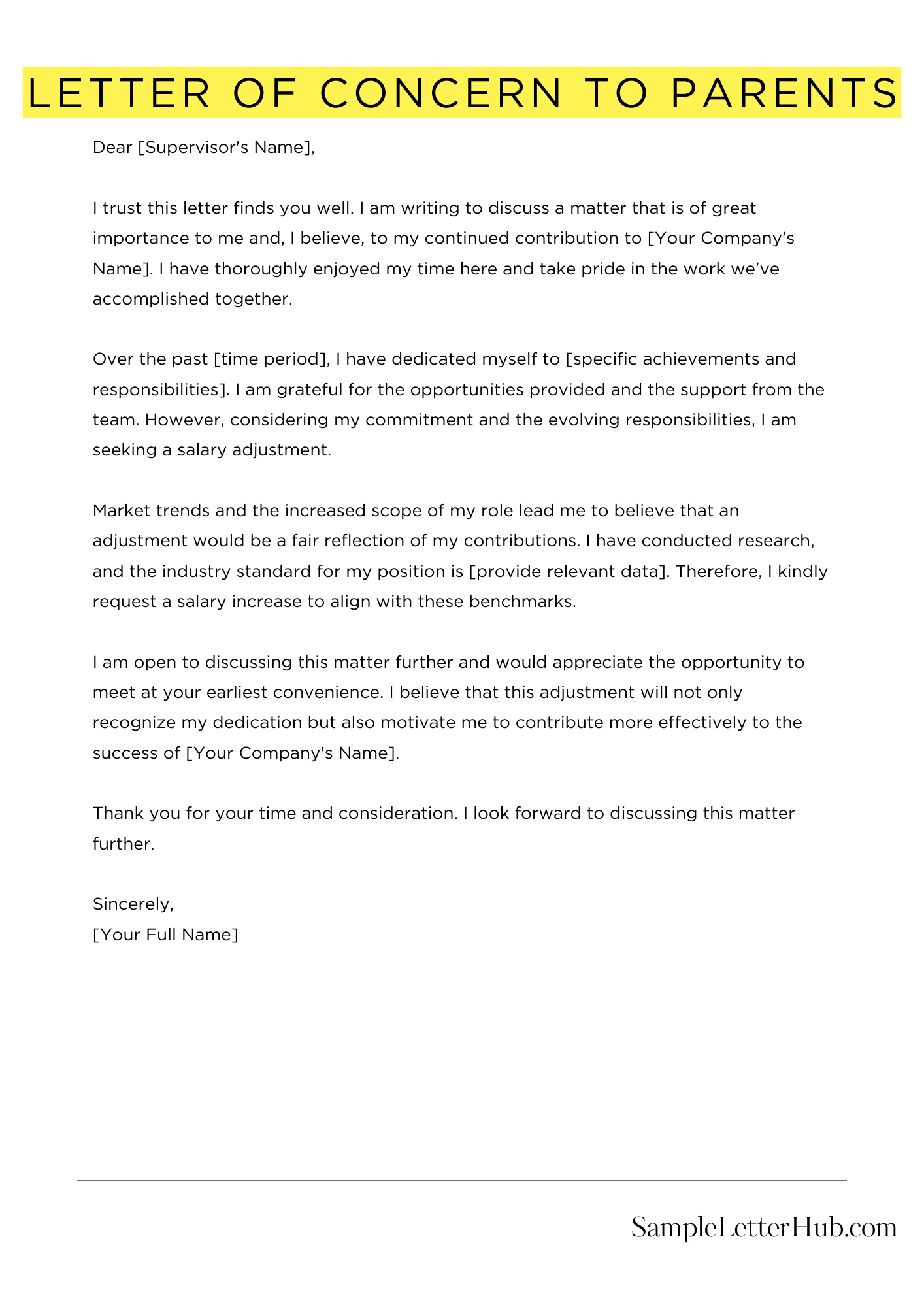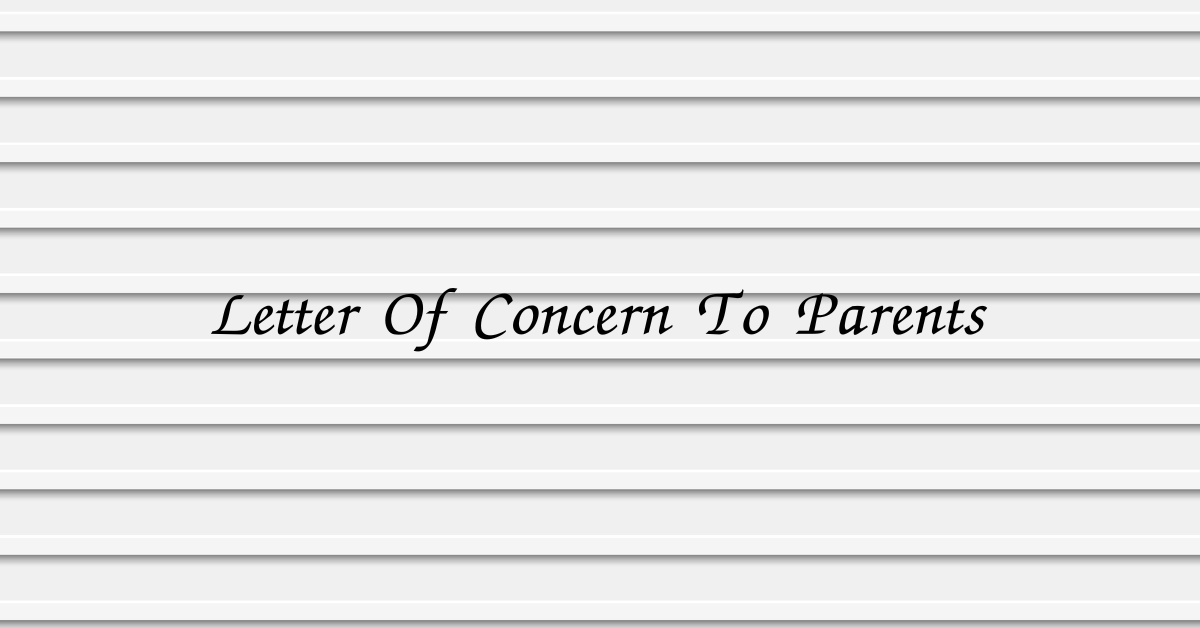A letter of concern to parents is a formal letter written by a teacher or school administrator to the parents of a student who is experiencing academic, behavioral, or social difficulties. The purpose of the letter is to inform the parents of the student’s concerns and to request their assistance in addressing them.
In this article, we will share several templates, examples, and samples of letters of concern to parents. These templates and examples will provide you with a starting point for writing your own letter and will help you to ensure that your letter is clear, concise, and professional.
Letter of Concern to Parents
Dear Mr. and Mrs. [Parents’ Last Name],
I am writing to express my concern regarding [Child’s Name]’s recent behavior in class. I have noticed a significant change in their attitude and performance over the past few weeks.
[Child’s Name] has been increasingly withdrawn and unengaged in class. They have been avoiding eye contact and participating less in discussions. Their grades have also declined, particularly in [Subject].
Additionally, I have observed [Child’s Name] exhibiting disruptive behavior, such as fidgeting, interrupting others, and making inappropriate comments. These actions have created a challenging learning environment for the entire class.
I believe it is important to address these concerns promptly to prevent further disruption and academic setbacks. I would like to schedule a meeting with you to discuss [Child’s Name]’s behavior and explore possible solutions.
Please contact me at your earliest convenience to arrange a time that works for you. I am available to meet either in person or virtually.
Thank you for your attention to this matter. I look forward to working with you to support [Child’s Name]’s success in school.
Sincerely,
[Your Name]

Writing a Letter of Concern to Parents
Writing a letter of concern to parents can be a daunting task, but it is an important one. When you have concerns about a child’s behavior or development, it is important to communicate those concerns to the parents in a clear and respectful way.
1. Start with a Positive Note
Begin your letter by acknowledging the parents’ role in their child’s life. Express your appreciation for their support and involvement.
2. State Your Concerns Clearly
Be specific about your concerns. Avoid using vague or general language. Instead, provide concrete examples of the child’s behavior or development that has raised your concerns.
3. Offer Solutions
If possible, offer suggestions for how the parents can address your concerns. This could include recommending specific resources or strategies.
4. Be Respectful
Remember that the parents are the ultimate decision-makers for their child. Be respectful of their opinions and perspectives, even if you do not agree with them.
5. Be Collaborative
Approach the conversation as a collaboration. Work together with the parents to develop a plan that is in the best interests of the child.
6. Follow Up
After you have sent the letter, follow up with the parents to see if they have any questions or concerns. Be available to provide support and guidance as needed.
7. Document Your Concerns
Keep a record of your concerns and communications with the parents. This will help you track the child’s progress and provide evidence if necessary.
FAQs about Letter Of Concern To Parents
What is a letter of concern to parents?
A letter of concern to parents is a formal communication from a teacher or school administrator to the parents of a student. It is used to express concerns about a student’s academic performance, behavior, or attendance.
When should a letter of concern be sent?
A letter of concern should be sent when a student is not meeting expectations in one or more areas. This could include academic concerns, such as low grades or incomplete assignments, or behavioral concerns, such as disruptive behavior or disrespect.
What should a letter of concern include?
A letter of concern should include the following information:
- A statement of the concern
- Specific examples of the student’s behavior or performance
- A request for a meeting to discuss the concern
How should a letter of concern be written?
A letter of concern should be written in a professional and respectful tone. It should be clear and concise, and it should avoid using judgmental or accusatory language.
What are the benefits of sending a letter of concern?
Sending a letter of concern can help to improve communication between the school and the parents. It can also help to raise awareness of a student’s needs and to develop a plan to address the concern.

